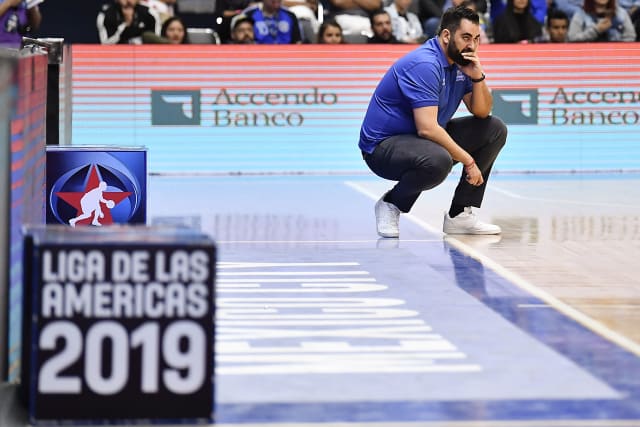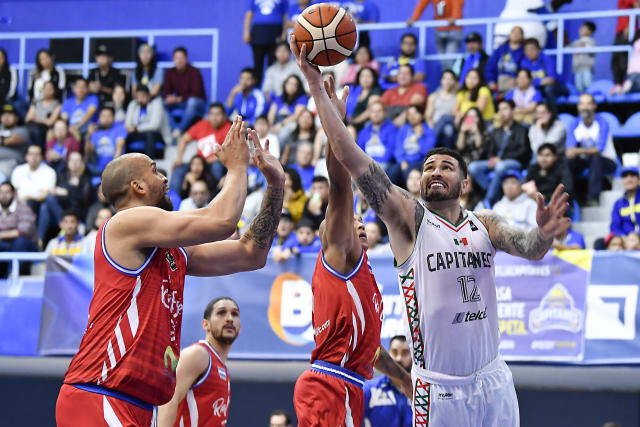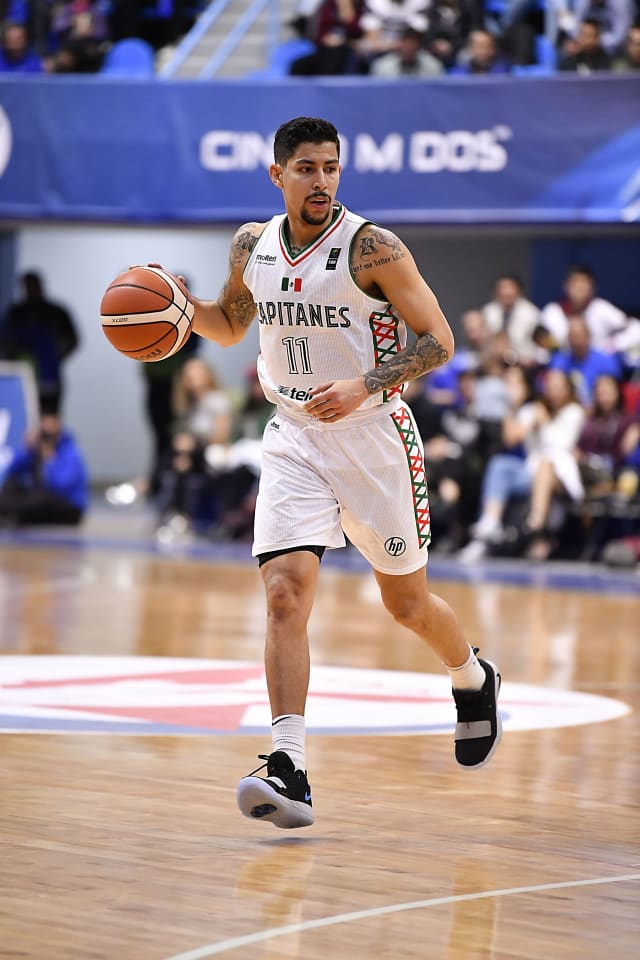Spanish is the language of Mexico's Capitanes
Even though the Constitution of the United States of Mexico or quite simply, Mexico, doesn’t state it officially, and although there are still more than 60 indigenous languages spoken by the country’s firs
Even though the Constitution of the United States of Mexico or quite simply, Mexico, doesn’t state it officially, and although there are still more than 60 indigenous languages spoken by the country’s first nations, the language used by the majority of its 120 million inhabitants is Spanish. In fact, Mexico is the territory with the largest number of Spanish speakers in the world.
However, if someone listens in on, for example, a time-out in a basketball team in this country and listens to how the stars communicate, they would doubt the facts stated in the previous paragraph. And this is because there has been a great number of American players that have landed in the team after achieving the Mexican nationality due to some family tie, which has overpopulated most professional teams and logically changes the language of communication into English.
When the Capitanes de Ciudad de México roster was built, its main owner, Moisés Cosío, was clear about it: “I want this team to talk in Spanish, I want practice and orders to be given in Spanish.” The entrepreneur acknowledges that “I took a stand, a position, since the birth of the team, and the reasoning behind it was the idea of achieving unity between Capitanes and the people of the city. To achieve this integration, we consider its key to have Mexican players that were born in Mexico and speak our language. We want players from our country, not just visiting.”
Meanwhile, Spanish coach Ramón Díaz admits that this was an issue that was discussed when Capitanes offered him the job. “There was an immediate understanding, because I came to that first meeting knowing that we would build a roster where Mexicans were the majority. Which is why when we built the team, the backbone was put together with local players — we wanted to give an identity both in and out of the court.”

Díaz spent four years assisting his fellow countryman Sergio Valdeolmillos in the Mexican team, which allowed him to learn firsthand “the passion that Mexicans feel for their national team, which broke FIBA Americas attendance records. That doesn't happen in clubs, in part, because they don't identify with some players. We can’t ask people to commit to the team if players come and go with no commitment to them, to the team or to the city.”
For the Spanish coach, “the problem regarding the massive arrival of Pochos (players born and raised in the United States, but with Mexican ancestors, and that don't play as foreigners) is a profound one that isn’t limited to the National League. It's about the structure of Mexican basketball, which isn’t worried about investing in basketball schools or working with minor leagues. That creates a situation in which no players are available. That’s why they then recruit in the United States. And like that, they’re developed in another country, and they don’t have to invest in training. But be careful, because there's nothing behind those current players.”
Power Forward Héctor Hernández is one of the local figures upon which the Mexico City team is built and is quite clear when stating that he is "very happy to be a part of the Capitanes project, that trusts the Mexican player and the development of Mexican players. It's the organization's policy to put together a good and human group, to count on good players that are also committed to the team. In a human group where there's dialogue and camaraderie it's easier to reach the objectives. Although we're colleagues, we must behave like a family. That all players speak Spanish is fundamental to our communication and relationships.”

For the four foreign players allowed by Liga de las Américas, Capitanes chose Latino players: Dominicans Rigoberto Mendoza and Luis Montero, Panamanian Ernesto Oglivie, and Cuban Ismael Romero. Hernández sees in good light that all reinforcements are from Latin America, since “we're united by the same or a very similar cultural background. We're more close-knit, or way of life is warmer, and that helped in the group dynamic and in what we've achieved until now.”
Some time ago, Hernández shared his criticism towards the large incorporation of Pochos in the National Mexican League teams. “The Capitanes project of trusting Mexican players is very valuable. We help each other out: we help with the organization to reach our goals, and they give us work. So, both parties win. As a Mexican player I feel valued by this organization. Us Mexican players have to support each other, especially considering future generations, so that they can develop as athletes and human beings,” pointed out the player born in Chihuahua.
Pedro “Pery” Meza's 14 years (2003-2017) of experience in the Mexican team grant him enough authority to share his views about the subject. For the 33-year-old point guard “Capitanes are a rare case within the LNBP because they trust Mexican players. They didn’t follow the footsteps of most teams that sign many players developed in the United States but have Mexican ties. It's an example that could hopefully be repeated in other countries as an example of defending basketball in our country."

When mentioning to Meza that the Mexican team that won the Americas Tournament in 2013 had five players that weren't born in Mexico, the Culiacan native replies: “but most players constantly demonstrated that they were committed to the national team, Mexican basketball, and even the nation. I'm not against foreign players with Mexican nationality playing in the LNBP. I'm just saying that Mexican players should also have the opportunity, and the training and the support in their development.”
Meza warns that “Mexican teams should pay attention to the development of the nation's young players to secure the future. If they don’t, we’ll have problems with the generational exchange and that’ll complicate Mexico’s aspirations of being in the highest levels in upcoming years.”
FIBA